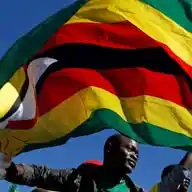
🇿🇼 Zimbabwe Political Discourse
February 26, 2025 at 10:36 AM
*Opposition lawyers, please come here and tell me if I’m wrong…*
1. Blessed Geza’s interview was pre-recorded, meaning it was not conducted live.
2. This gave Blessed Mhlanga ample opportunity to review the content and choose not to publish any material that could be deemed subversive to the government and the President.
3. As a result, this situation cannot be equated to a live interview or press conference, where a reporter might reasonably claim they were unaware of what the interviewee would say in advance.
Given that Geza’s interview was pre-recorded, Blessed Mhlanga had full editorial discretion to either edit or withhold any content that could be interpreted as subversive. By choosing to publish the material, he assumes full responsibility for its implications.
1. Publication of Subversive Statements
Section 22 of the Criminal Law (Codification and Reform) Act criminalises subversion of a constitutional government, which includes publishing content aimed at inciting resistance or undermining the lawful authority of the state.
If Geza’s statements can be interpreted as promoting insurrection or hostility against the government, Blessed Mhlanga may be held liable for facilitating the dissemination of such content.
2. Abuse of Journalistic Privileges
The Access to Information and Protection of Privacy Act (AIPPA) [now replaced by the Freedom of Information Act] previously outlined journalistic responsibilities. However, Zimbabwean law continues to emphasise the duty of media practitioners to report responsibly and avoid maliciously misrepresenting facts.
Since Mhlanga had full editorial control, his decision to air potentially subversive material could be interpreted as wilful participation in actions that threaten public order.
3. Cyber and Data Protection Act Compliance
If the interview was distributed online, it may fall under the Cyber and Data Protection Act, which criminalises the spread of content harmful to national security or public interest.
This could expose Mhlanga to legal consequences under cybersecurity laws if the content is deemed to have been intentionally disseminated to incite public disorder.
Blessed Mhlanga cannot claim plausible deniability, as he had both knowledge and control over the interview before its publication. Under Zimbabwean law, he could face legal scrutiny if authorities determine that his actions amount to the intentional propagation of subversive material.
Unlike a live broadcast, where unpredictability can serve as a defence, a pre-recorded interview carries clear editorial responsibility - and potential legal consequences.
Source: https://x.com/dereckgoto/status/1894691657196400668